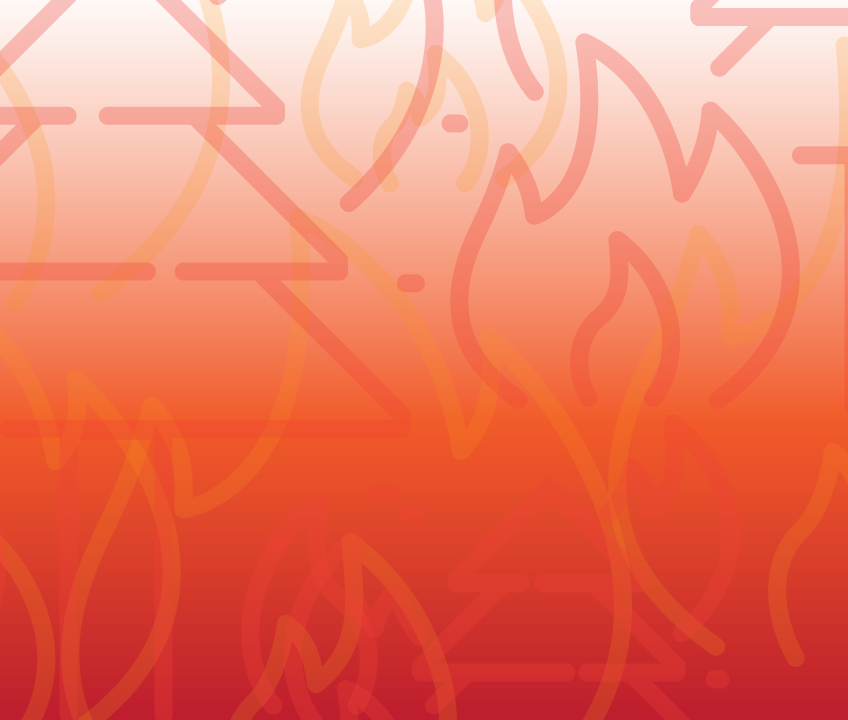Algoma Public Health
Air Quality and Health: Wildfire Smoke
During a wildfire, dense smoke can be carried thousands of kilometres from the fire zone impacting the air quality for many. Smoke, even at low levels, can impact our health. Ensure you are taking proper measures to protect yourself and those you care for during this time!
On this page:
- Who is at risk
- Symptoms
- Staying informed
- Protecting your health and safety
- Masking during air quality events
- Take care of your mental health and well-being
Who is at risk?
Those most at-risk of the health effects of wildfire smoke are:
- Seniors
- Indigenous Peoples
- People who smoke
- Infants and young children
- People living in rural and remote areas
- Pregnant women and pregnant people
- People involved in strenuous outdoor exercise
- People living in situations of lower socio-economic status such as:
- Those with lower income
- Those with lower education
- Those experiencing housing insecurity
- Those experiencing uncertain employment
- People who work outdoors, including wildland firefighters
- People with an existing illness or chronic health conditions such as:
- Cancer
- Diabetes
- Lung or heart conditions
Symptoms from exposure to smoke
Exposure to smoke most commonly results in milder symptoms such as:
- Eye irritation
- Throat irritation
- Cough
- Runny nose
- Headaches
More severe symptoms include:
- Dizziness
- Chest pains
- Difficulty breating
- Wheezing
- Heart palpitations (irregular heartbeat)
Exposure to wildfire smoke is associated with several health effects including exacerbation of existing respiratory and cardiovascular diseases such as:
- Asthma
- Chronic obstructive pulmonary disease
- Congestive heart failure
If you have any of these symptoms, talk to a health care provider or seek urgent medical attention.
Staying informed
Air quality due to wildfire can fluctuate and vary considerably throughout the day. Stay informed to stay prepared!
- Monitor the APH News page and social media to stay informed on active alerts in your area and follow guidance provided by local public health units.
- Get the WeatherCAN app to receive direct notifications to your phone.
- Sign up for MECP’s Air Quality Alert Email Notifications
- Monitor the Air Quality Health Index (AQHI) (where applicable)
- In areas where the AQHI is not available, check out the UNBC air quality map to see if your area is being monitored
*Note: Where UNBC air quality map is being used hover over area of interest to see AQHI health risk category.
(Table 1: Summary of Air Quality Health Messages by Category)
| Health Risk | Air Quality Health Index (AQHI) | HEALTH MESSAGES | |
| At Risk Population | General Population | ||
| Low | 1-3 | Enjoy your usual outdoor activities | Ideal air quality for outdoor activites |
| Moderate | 4-6 | Consider reducing or rescheduling strenuous activities outdoors if you are experiencing symptoms | No need to modify your usual outdoor activities unless you experience symptoms such as coughing and throat irritation |
| High | 7-10 | Reduce or reschedule strenuous activities outdoors. Children and the elderly should also take it easy | Consider reducing or rescheduling strenuous activities outdoors if you experience symptoms such as coughing and throat irritation |
| Very High | Above 10 | Avoid strenuous activities outdoors. Children and the elderly should also avoid outdoor physical exertion | Reduce or reschedule strenuous activities outdoors, especially if you experience symptoms such as coughing and throat irritation. |
Protecting your health and safety










